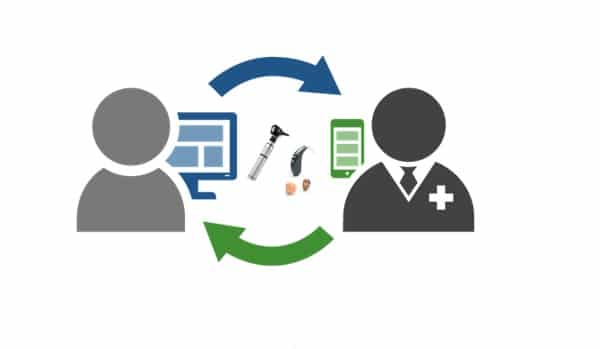Editor’s Note: Due to the significant growth of Third Party Administrators and Hearing Aid Referral Networks in recent years, there has been increasing interest in this topic among hearing professionals. Today Alyson McBride, from HearStore, offers her perspective on the subject and what makes her company different. The views below are her own.
by Alyson McBride
Over the past few years, third-party administrators (3PAs) and hearing aid referral networks (HARNs) have increased their market share substantially. Many hearing health professionals have welcomed this development, looking at referrals from 3PAs and HARNs as invaluable calendar fillers.
On the other hand, a growing number of hearing health professionals are coming to realize that such entities are eroding their profit margins by capturing and referring the same patients who might otherwise walk in the door as privately-paying patients.
Primary concerns about 3PAs and HARNS
Many hearing health professionals have expressed concerns about the proliferation of 3PAs and HARNs in recent years:
- Profit margins appear reduced, often substantially, when compared to private-pay transactions. This may be incorrect though given the average CPA (cost-per-acquisition) of a typical retail patient.
- Local market share is being eroded by 3PAs and HARNs, who market online or funnel patients through healthcare benefit administrators.
- Consumers increasingly rely on the internet to research hearing aid options and prices.
Other concerns about 3PAs and HARNs include the reduced flexibility of hearing health professionals to recommend their clients appropriate products; the reduced ability to order hearing aids through their own purchasing channels; service agreements dictated by 3PA that often further erodes profit margins; complications in dealing with 3PA in the selection, fitting, and follow-up process with the client; and working with patients who may not be a good fit.
Why HearStore’s Approach is Different
Knowing that consumers were becoming more educated about their potential options, HearStore saw an opportunity to provide more transparency and choice than many of the other options that existed in the marketplace.
By unbundling the product from the service, there was an opportunity to compete with the direct-to-consumer sites on price, while keeping local providers at the center of the transaction. In addition, HearStore wanted to recognize the importance of the hearing care provider by giving them 100% of the revenue captured by service packages. After a year of planning and preparation, HearStore launched in late 2017 with these goals in mind.
What HearStore offers hearing healthcare practices
- A provider reimbursement model based on actual work
- 100% of local service package price (HearStore does not take any commission on service packages)
- Non-compete for local keywords with Adwords campaigns (unlike other 3PAS, who actively compete against their network providers by bidding on local keywords)
- Access to consumers who are avoidant of the traditional models
- More direct service between hearing healthcare practices and the patient (i.e. we do not “own the patient”; if the consumer and the clinic decide to work out their own service package arrangement, they are welcome to do so.)
- An option for internet searchers that is not direct-to-consumer
Offering consumers choice through unbundling
HearStore offers the consumer choice by unbundling the longer-term service from the product purchase. This allows the consumer to make choices on what type of service plan works for them. HearStore offers 1, 2, or 3-year local service plans to patients and 100% of the revenue goes towards provider reimbursements.
In addition, the HearStore provider agreement allows for the provider and consumer to work out their own service agreement, if applicable.
The typical HearStore customer
The typical HearStore customer has already received a recommendation (or multiple recommendations) from a local hearing care provider and has chosen not to purchase at that time. They have also typically visited more than one website and have often considered purchasing from direct-to-consumer websites (such as buyhear).
These patients are often considering top-tier hearing aids and have typically been quoted prices in the $5500-$6500 range. HearStore captures these customers before they make a direct purchase from a DTC (direct-to-consumer) site and connects them with local hearing healthcare providers for their fittings.
What HearStore offers consumers
- Lower prices
- Choice (unbundled model)
- Transparency in pricing
- Recommendations not biased by financial commitments
- Connection to local hearing healthcare providers
- An alternative to the no-provider, direct-to-consumer approach
What HearStore offers hearing aid manufacturers
The HearStore website offers a number of benefits for the brands listed on the site. First, hearing aid consumers get exposure to products that they may not have been aware of before landing on the site. By reading through descriptions, comparisons and reviews, customers can make a more educated decision about how these products fit their lifestyle preferences. Better educated consumers are more satisfied consumers. Unlike other websites out there, HearStore has no brand bias.
HearStore provides manufacturers:
- Access to hearing aid consumers via the internet, without cutting out the independent practitioners relied on by manufacturers
- A way for manufacturers to get information about their products in front of research-oriented consumers
What can clinics learn from HearStore’s experience?
- The unbundled model of care is very attractive to a large number of prospective consumers.
- Unbundling can help reduce the sticker shock associated with traditional hearing aid prices.
- Consumers will often make the “right choice” when presented with a lower-cost option that includes limited professional care vs. a cheaper direct-to-consumer options with no professional care.
- Many consumers have expressed concerns when it comes to purchasing “locked” hearing aids.
- Consumers increasingly want choice and transparency. The more your practice can provide that to prospects online, the greater the chance you will capture some of these prospective patients before they purchase through a DTC, 3PA or HARP.
Providers interested in learning more or joining the network may visit the HearStore provider page.
 Alyson McBride is the Customer Success Manager at HearStore. With a strong background in customer service and call center management, Alyson has led HearStore’s customer success team since its inception in 2017. Helping people find more affordable hearing care is what motivates Alyson to help provide the best service possible.
Alyson McBride is the Customer Success Manager at HearStore. With a strong background in customer service and call center management, Alyson has led HearStore’s customer success team since its inception in 2017. Helping people find more affordable hearing care is what motivates Alyson to help provide the best service possible.
*featured image courtesy getreferralmd






